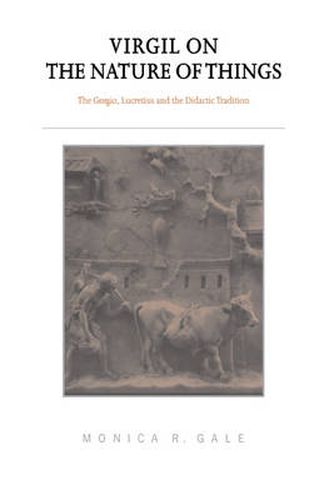Readings Newsletter
Become a Readings Member to make your shopping experience even easier.
Sign in or sign up for free!
You’re not far away from qualifying for FREE standard shipping within Australia
You’ve qualified for FREE standard shipping within Australia
The cart is loading…






The Georgics has for many years been a source of fierce controversy among scholars of Latin literature. Is the work optimistic or pessimistic, pro- or anti-Augustan? Should we read it as a eulogy or a bitter critique of Rome and her imperial ambitions? This book suggests that the ambiguity of the poem is the product of a complex and thorough-going engagement with earlier writers in the didactic tradition: Hesiod, Aratus and - above all - Lucretius. Drawing on both traditional, philological approaches to allusion, and modern theories of intertextuality, it shows how the world-views of the earlier poets are subjected to scrutiny and brought into conflict with each other. Detailed consideration of verbal parallels and of Lucretian themes, imagery and structural patterns in the Georgics forms the basis for a reading of Virgil’s poem as an extended meditation on the relations between the individual and society, the gods and the natural environment.
$9.00 standard shipping within Australia
FREE standard shipping within Australia for orders over $100.00
Express & International shipping calculated at checkout
The Georgics has for many years been a source of fierce controversy among scholars of Latin literature. Is the work optimistic or pessimistic, pro- or anti-Augustan? Should we read it as a eulogy or a bitter critique of Rome and her imperial ambitions? This book suggests that the ambiguity of the poem is the product of a complex and thorough-going engagement with earlier writers in the didactic tradition: Hesiod, Aratus and - above all - Lucretius. Drawing on both traditional, philological approaches to allusion, and modern theories of intertextuality, it shows how the world-views of the earlier poets are subjected to scrutiny and brought into conflict with each other. Detailed consideration of verbal parallels and of Lucretian themes, imagery and structural patterns in the Georgics forms the basis for a reading of Virgil’s poem as an extended meditation on the relations between the individual and society, the gods and the natural environment.